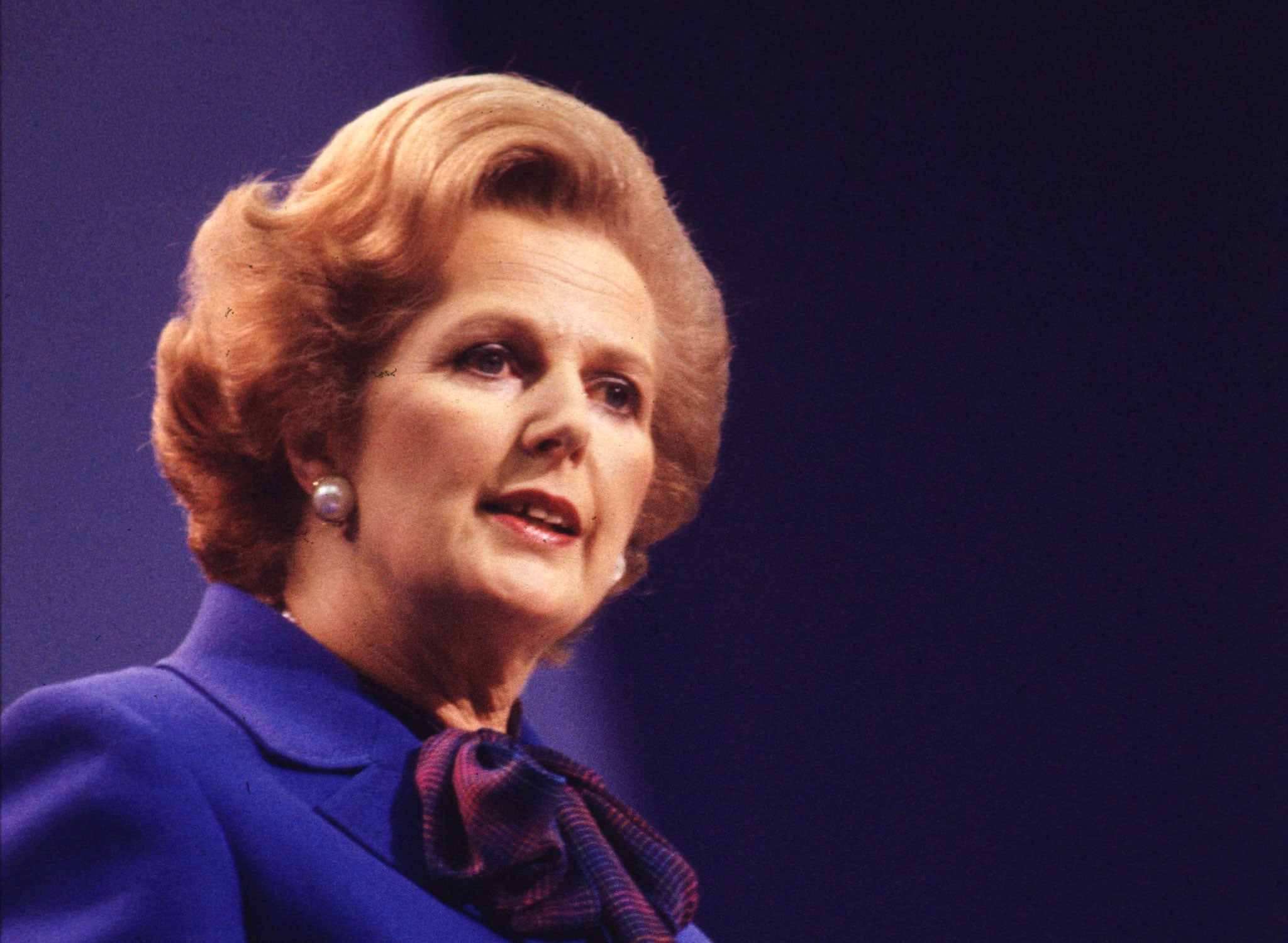Europe: confronting Thatcher's fallacy
The European Commission must be transformed into a democratic constitutional government if the more united Europe is to be better governed

Your support helps us to tell the story
From reproductive rights to climate change to Big Tech, The Independent is on the ground when the story is developing. Whether it's investigating the financials of Elon Musk's pro-Trump PAC or producing our latest documentary, 'The A Word', which shines a light on the American women fighting for reproductive rights, we know how important it is to parse out the facts from the messaging.
At such a critical moment in US history, we need reporters on the ground. Your donation allows us to keep sending journalists to speak to both sides of the story.
The Independent is trusted by Americans across the entire political spectrum. And unlike many other quality news outlets, we choose not to lock Americans out of our reporting and analysis with paywalls. We believe quality journalism should be available to everyone, paid for by those who can afford it.
Your support makes all the difference.The funny thing is that Margaret Thatcher quite liked Europe. 'Britain does not dream of some cosy, isolated existence on the fringes of the European Community. Our destiny is in Europe, as part of the Community'. Re-reading the Bruges speech, delivered 25 years ago this Friday, British pro-Europeans may find much good sense: an attack on the flaws of the CAP, an appeal for less regulation and more enterprise, support for the liberalisation of capital and a 'genuinely free market in financial services', hostility to protectionism, and lastly, support for a stronger European contribution to defence.
What Thatcher disliked about Europe was the 'Community method', devised largely by Jean Monnet, in which the European Commission initiates laws which are then enacted jointly by the European Parliament, representing the citizens, and the Council, representing the states. Although a stickler for keeping rules, Thatcher also resented the powers of the European Court of Justice over national courts. Typical of her countrymen, she loved pragmatism and loathed ideology. As she told her largely Francophone federalist audience in Bruges: 'The Community is not an end in itself. Nor is it an institutional device to be constantly modified according to the dictates of some abstract intellectual concept'.
'Willing and active cooperation between independent sovereign states is the best way to build a successful European Community. To try to suppress nationhood and concentrate power at the centre of a European conglomerate would be highly damaging ... I want to see us work more closely on the things we can do better than alone. But working more closely together does not require power to be centralised in Brussels or decisions to be taken by an appointed bureaucracy.' And in her most quoted sentence: 'We have not successfully rolled back the frontiers of the state in Britain, only to see them re-imposed at a European level with a European super-state exercising a new dominance from Brussels'.
British euroscepticism had its scripture. It became fashionable for Europe's leaders to blame Brussels for everything which went wrong and keep for themselves the applause when things went well. The interdependence of the EU states and the extra capability provided by the EU institutions were seldom acknowledged in public even while more duties and tasks were being foisted on the Union. National governments willed the ends but not the means, ever reluctant to give the EU the powers and resources it needs. Instead, national policies have been coordinated in a technocratic manner, leading to over-centralisation and a lack of democratic legitimacy. This tendency has been accentuated by way of crisis management after the financial crash. Rigid austerity has been imposed by 'Brussels' on the poorer member states with no clear lines of accountability. Executive authority is diffuse and opaque, and parliamentary control is divided between the European and national parliaments. European political parties are practically non-existent.
While much is said about the EU's supposed democratic deficit, however, the crisis has exposed a more acute deficit of government. The euro will be salvaged once banking union is in place and fiscal solidarity complements fiscal discipline. A fiscal union needs to be run by a federal government with a wide competence and flexible instruments, endowed with resources to match the level of Europe's political ambition. With stronger government will come stronger parliamentary democracy in which EU citizens can hold to account those in charge of their European affairs.
Begging Thatcher's pardon, but it is the European Commission which must be transformed into a democratic constitutional government if the more united Europe is to be better governed. It is ironic that one of the few European leaders to call openly for a fiscal union (albeit without the UK) is David Cameron. Other leaders who, unlike Cameron, intend to pursue the path of European integration need now to confront the Thatcher fallacy. 'More Europe' for its own sake is no more popular today than it was 25 years ago. But if the EU 'needs to be big on big things and smaller on smaller things', as José Manuel Barroso puts it, it needs the power of federal government.
Andrew Duff is the Liberal Democrat MEP for the East of England and Spokesman on Constitutional Affairs for the Alliance of Liberals and Democrats for Europe (ALDE) and President for the Union of European Federalists (UEF)
Join our commenting forum
Join thought-provoking conversations, follow other Independent readers and see their replies
Comments